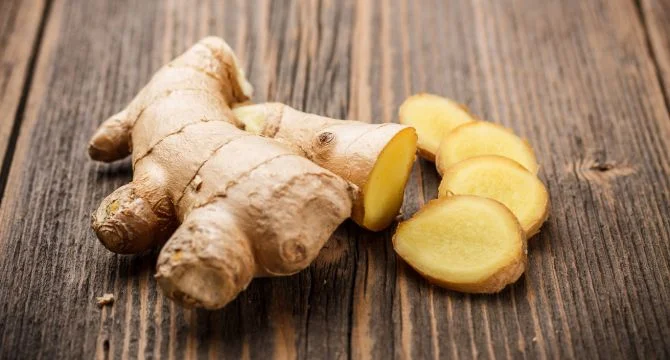How Much Ginger Should I Take Daily? A Comprehensive Guide

Ginger, a flowering root plant native to Southeast Asia, is known for its unique flavor and powerful health advantages. As researchers uncover more information about ginger's impact on our well-being, many individuals are considering incorporating it into their daily diet. However, it's important to understand the recommended daily intake of ginger to maximize its potential benefits. In this article, we will explore the ideal amount of ginger you should consume daily based on expert recommendations and the potential health benefits associated with ginger consumption.
Understanding the Health Benefits of Ginger:

Helps with Osteoarthritis Pain:
Studies have shown that ginger can improve pain and stiffness associated with inflammation-related conditions like osteoarthritis. While it may not provide immediate relief, ginger's regular consumption has been found to alleviate pain over time. Recent research has also explored the application of ginger oil topically to relieve osteoarthritis-related discomfort.Relieves Menstrual Cramps:
Ginger has been found to be as effective as over-the-counter pain medications like ibuprofen in easing menstrual pain. Research indicates that ginger reduces pain levels in women experiencing menstrual cramps, showcasing its potential as a natural alternative for menstrual pain relief.Improves Blood Sugar Regulation:
Certain studies suggest that gingerol, present in ginger, helps maintain stable blood sugar levels, a crucial factor in managing the long-term effects of diabetes. Consumption of powdered ginger supplements has shown a noticeable reduction in fasting blood sugar levels among individuals with type 2 diabetes, indicating its potential in glycemic control.Soothes an Upset Stomach:
Ginger is widely recognized for its ability to calm an upset stomach. It has been found to be highly effective against nausea, including pregnancy-related nausea, motion sickness, and nausea associated with surgery or cancer treatment. Ginger ale, specifically the carbonation, is known for its soothing properties, while ginger itself aids in relieving nausea symptoms.Improves Indigestion:
Chronic indigestion often occurs when the stomach takes longer to empty its contents. Ginger helps speed up the process by facilitating food movement through the digestive system. Studies have shown that ginger accelerates gastric emptying, even in individuals without chronic indigestion.Reduces Risk of Heart Disease:
Early studies, both in humans and animals, indicate that ginger consumption may contribute to reduced cholesterol levels, particularly LDL (bad) cholesterol. High cholesterol levels are associated with an increased risk of heart disease. While more research is needed, ginger shows promise in improving cholesterol profiles and reducing the risk of heart disease.Recommended Daily Intake of Ginger:
While ginger is generally safe for daily consumption, it is advised to limit intake to 3 to 4 grams per day, with a maximum of 6 grams for individuals not experiencing any gastrointestinal issues. Pregnant women are recommended to stick to 1 gram per day. Here are some equivalents to consider:- ½ teaspoon of powdered ginger
- 1 teaspoon of grated raw ginger
- 4 cups of water steeped with ½ teaspoon grated ginger
Post a Comment